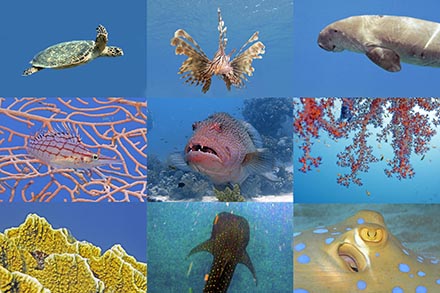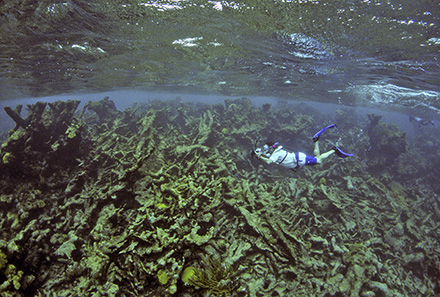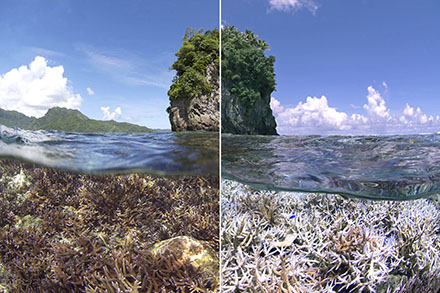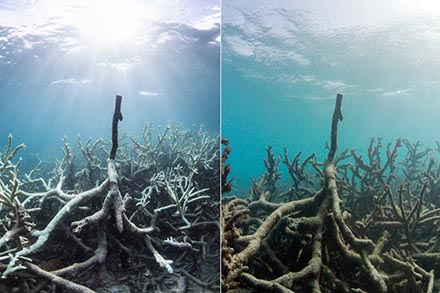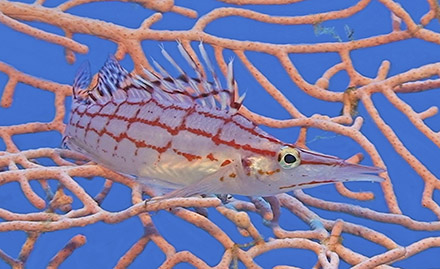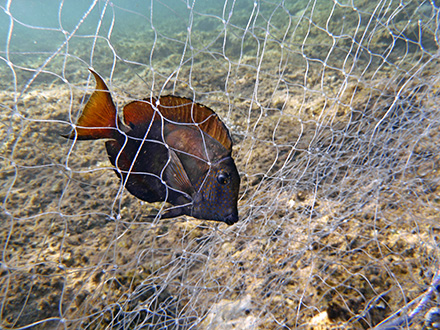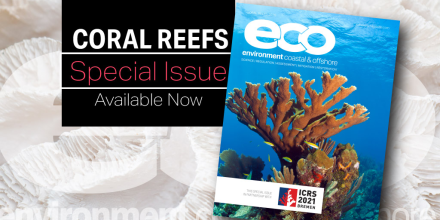"These symposia are by far the most important world conferences dealing with the ecosystems of coral reefs. They have a 50-year history. The first international coral reef symposium took place in 1967. Like the Olympic Games, they take place every four years and are awarded by the International Coral Reef Society. We expect 1000 participants from more than 90 countries. Most of them are scientists, but also representatives of institutions, coastal managers, journalists and political decision-makers".
Prof. Dr. Christian Wild, Conference Chairman ICRS 2021 and 2022, University of Bremen
"In order to preserve and better protect coral reefs worldwide, we need a global response and a networking of actors in politics, administration, and science. The International Coral Reef Symposium in Bremen provides the framework for this. We are facing a threefold challenge: the climate crisis, the biodiversity crisis, and the pollution crisis. That is why more needs to be done to protect coral reefs, in addition to ambitious climate protection measures. Germany is already committed to protecting these unique ecosystems as a member of the International Coral Reef Initiative and as part of the International Climate Initiative."
Steffi Lemke, Federal Minister for the Environment, Germany
"Our green strategy has a high priority for us. We were succesful in implementing the 14th ICRS as climate neutral event. And we used a two-step strategy for the 15th ICRS: First, we applied a range of measures to avoid CO2 emissions here. That includes the provision of public transport flatrate tickets for all ICRS participants and sustainable catering, i.e. focus on vegetarian, locally produced, and organic meals. And second, we compensate all unavoidable CO2 emissions, particularly induced by the travel of participants."
Heinz Krimmer, Press and Media Management ICRS ICRS 2021 and 2022
"The in-person 15th ICRS will host about 1000 participants in Bremen and many more virtually. To make this a more inclusive symposium, registration for virtual participation is free to all ICRS members from low, low-middle, and middle-income countires. In addition, all presentations can be archived, enabling all participants to see and discuss missed presentations for months after the event."
Prof. Dr. Andrea Grottoli, President of the International Coral Reef Society (The Ohio State University, USA)
"This year's ICRS 2022 provides an opportunity for constructive exchange between science and policy. Tuesday, July 5, is our "Solutions Day." The day will focus on the Science-to-Policy Dialogue. All events on this day of the conference are dedicated to the theme "Ways Out of the Crisis." It is precisely because of this solutions-oriented approach that this conference has a very special significance. The sooner we tackle these solutions, the better."
Svea Vollstedt, Conference Management ICRS 2022, University of Bremen
"The ICRS 2022 scientific program was developed and agreed upon with input from the scientific community. Therefore, the topics reflect current research and the most pressing issues of the coral reef crisis."
Selma Mezger, Conference Management ICRS 2022, University of Bremen
"The 15th ICRS 2022 is so important because we are in a deep coral reef crisis, probably the deepest coral reef crisis in Earth's history. This makes the dialogue between scientists, the public and decision-makers all the more important. The World Coral Reef Conference is the largest platform for this dialogue and in addition this 15th ICRS 2022 will be the first World Coral Reef Conference to take place in Europe. It is time for Europe to take responsibility for contributing to the damage and degradation of coral reefs through greenhouse gas emissions. Especially as Europe benefits from the services that coral reefs offer us all. For example, through high biodiversity, which is important for the production of new medicines and other industrial products".
Prof. Dr. Christian Wild, Conference Chairman ICRS 2021 and 2022, University of Bremen
"The coral reef conference 2022 in Germany is so important because for the German population it is about a topic that is not so common in their everyday lives. I think that this conference will generate interest and attention for the coral reefs, especially among young people who can learn, who can experience what happens to the coral reefs in front of our eyes."
Dr. Götz B. Reinicke, Curator of Marine Ecology - Coelenterata, Molluscs and Echinoderms, German Marine Museum Stralsund
"The importance of the Reef Conference is that every few years it gives us researchers the opportunity to interact with society. For us scientists, who have a mandate from society to do research and are paid by it, it is important to communicate our results and not to stay among ourselves. Such a meeting every few years is of course an ideal opportunity for us to exchange ideas, but also to present the latest state of research to society and discuss it with the public."
Dr. Sebastian Ferse, Reef Ecologist and Senior Scientist at ZMT
